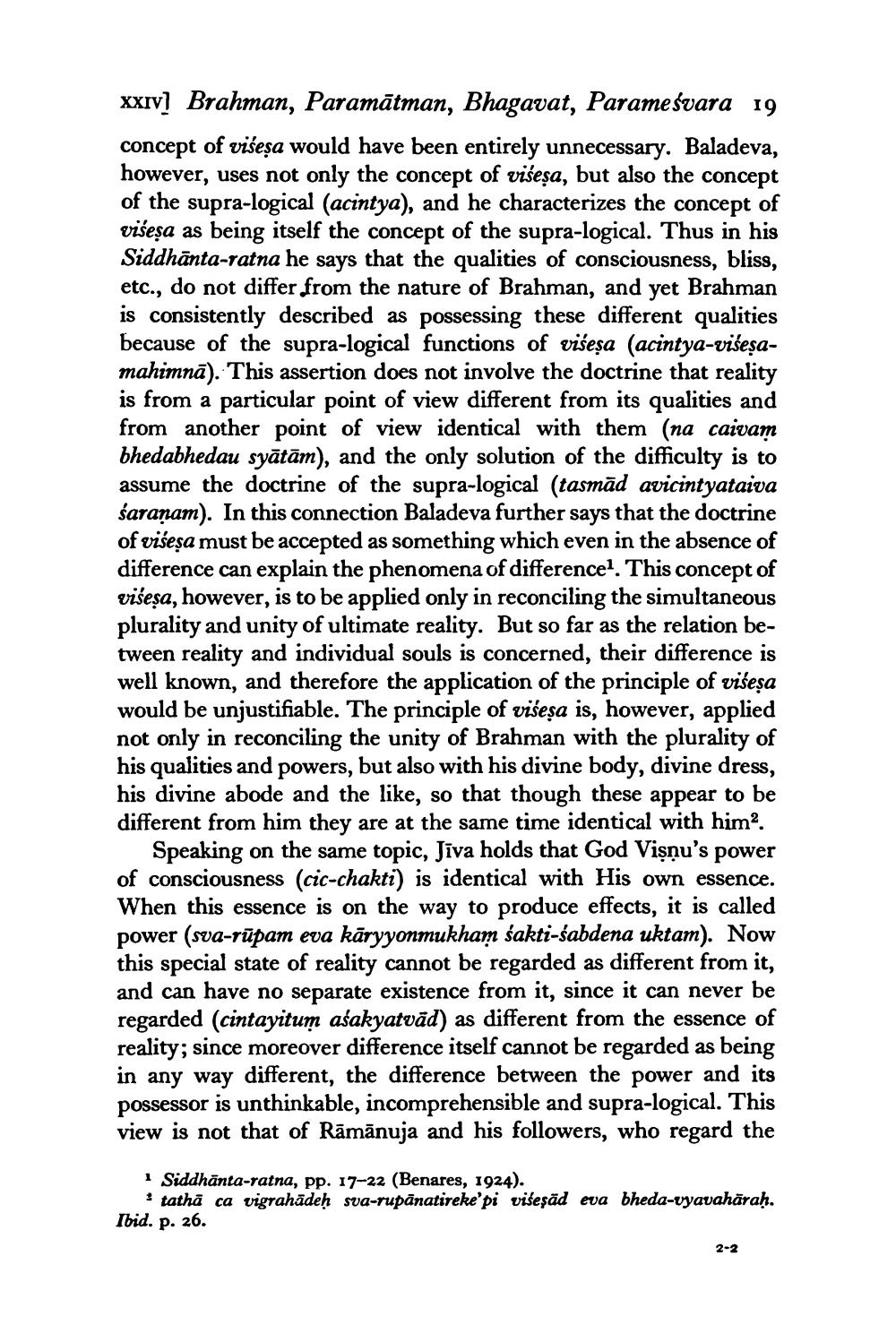________________
xxrv] Brahman, Paramātman, Bhagavat, Parameśvara 19 concept of višeșa would have been entirely unnecessary. Baladeva, however, uses not only the concept of višeșa, but also the concept of the supra-logical (acintya), and he characterizes the concept of višeșa as being itself the concept of the supra-logical. Thus in his Siddhānta-ratna he says that the qualities of consciousness, bliss, etc., do not differ from the nature of Brahman, and yet Brahman is consistently described as possessing these different qualities because of the supra-logical functions of višesa (acintya-višeșamahimnā). This assertion does not involve the doctrine that reality is from a particular point of view different from its qualities and from another point of view identical with them (na caivam bhedabhedau syātām), and the only solution of the difficulty is to assume the doctrine of the supra-logical (tasmād avicintyataiva śaranam). In this connection Baladeva further says that the doctrine of viseșa must be accepted as something which even in the absence of difference can explain the phenomena of difference. This concept of višesa, however, is to be applied only in reconciling the simultaneous plurality and unity of ultimate reality. But so far as the relation between reality and individual souls is concerned, their difference is well known, and therefore the application of the principle of visesa would be unjustifiable. The principle of višesa is, however, applied not only in reconciling the unity of Brahman with the plurality of his qualities and powers, but also with his divine body, divine dress, his divine abode and the like, so that though these appear to be different from him they are at the same time identical with him.
Speaking on the same topic, Jiva holds that God Vişnu's power of consciousness (cic-chakti) is identical with His own essence. When this essence is on the way to produce effects, it is called power (sva-rūpam eva kāryyonmukham śakti-śabdena uktam). Now this special state of reality cannot be regarded as different from it, and can have no separate existence from it, since it can never be regarded (cintayitum aśakyatvād) as different from the essence of reality; since moreover difference itself cannot be regarded as being in any way different, the difference between the power and its possessor is unthinkable, incomprehensible and supra-logical. This view is not that of Rāmānuja and his followers, who regard the
1 Siddhānta-ratna, pp. 17-22 (Benares, 1924).
tathā ca vigrahādeh sva-rupānatireke'pi višeşād eva bheda-vyavahāraḥ. Ibid. p. 26.
2-2




